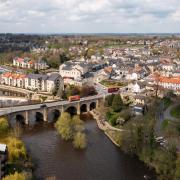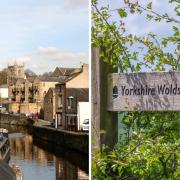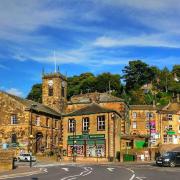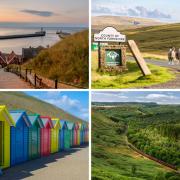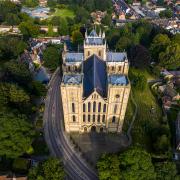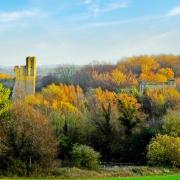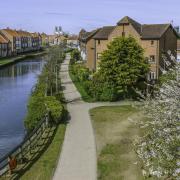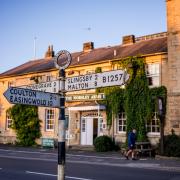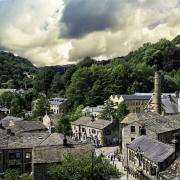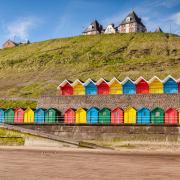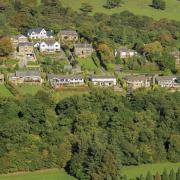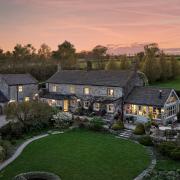It has a reputation for being quirky and very, very arty, even more reason in our book to explore Hebden Bridge in the Upper Calder Valley, West Yorkshire.
1. Hardcastle Crags This is a South Pennine beauty spot overlooking the town of Hebden Bridge with more than 160 hectares (400 acres) of unspoilt woodland. It’s the home of the northern hairy wood ant as well as tumbling streams, glorious waterfalls and stacks of millstone grit, all crisscrossed by more than 15 miles (24km) of footpaths. At its heart is Gibson Mill, a family-friendly visitor centre, telling the history of the valley over the past 200 years, with interactive displays, dressing up, dancing and exhibitions plus there are wonderful walks and has now become an extraordinary venue for weddings.
2. The Picture House This is no ordinary cinema. It opened in 1921 and is one of the last civic owned cinemas in the UK. This was the main place for entertainment for weavers, mill-workers and residents alike and has always been a cinema although it may have not survived without some tough community action on more than one occasion. Today it is very much part of the heritage of Hebden Bridge. It shows between 15 and 26 films each month and programming ranges from mainstream Hollywood to art-house and foreign language films.
3. Upstairs downstairs houses Hebden Bridge is a popular place to live but building space is limited because of its steep valleys and lack of flat land. Some creative thinking in the past led to ‘upstairs-downstairs’ houses known as over and under dwellings. These were houses built in terraces with four to five storeys. The upper storeys face uphill while the lower ones face downhill with their back wall against the hillside. The bottom two storeys would be one house while the upper two to three storeys would be another.
4. Creative quarter This unique project includes the regeneration of the landmark town hall which came under community trust ownership about three years ago. It is intended to be home to more than 30 small digital and creative businesses with shared public hall, conference and seminar rooms. The project has created a public courtyard, a hall that seats 200 and it’s licensed for weddings and civil partnerships.
5. Packhorse bridge This ancient bridge built in 1510 is where life began for the town of Hebden Bridge – it grew as a settlement where the Halifax to Burnley hilltop packhorse route dropped down into the Calder valley. The route crossed the River Hebden at the spot where the old bridge stands and from where the town takes its name. Hebden Bridge celebrated the 500th birthday of the bridge in 2010 with some style using the anniversary as an excuse for a year long series of events.
6. Water and walks The Rochdale Canal slides through Hebden Bridge bringing with it growing numbers of narrow boat holiday makers. The towpath is also popular for walkers. The Hebden Bridge Visitor and Canal Centre have maps and information on town trails, walking, cycling, horse riding as well as historical and local interest guides. Call 01422 843831.
7. Shopping More than a few tourists head to Hebden Bridge for an annual shopping spree buying anything from their favourite lingerie to supplies of tea and biscuits. The town has independent stores selling everything from high fashion to organic fruit and vegetables, not to mention craft and health food shops.
8. Love of the arts Hebden Bridge Arts Festival takes place every June/July. Organisers are teaming up with The Handmade Parade which will process through the town from noon and meet the Arts Festival in Calder Holmes Park for an extravaganza of street entertainment. Learn more from hebdenbridgeartsfestival.co.uk
9. The Little Theatre More about the arty side of town. The Little Theatre has been producing plays almost continuously since 1924 even though venues have varied until it created its own permanent home by converting a coach garage, later renovating further the building in Holme Street which seats 120.
10. Its nickname Hebden Bridge with its steep wet hills and access to major wool markets was ideal for water powered weaving mills that powered along in the 19th and 20th centuries. At one time Hebden Bridge became so famous for its clothing manufacture that it became known as Trouser Town.




